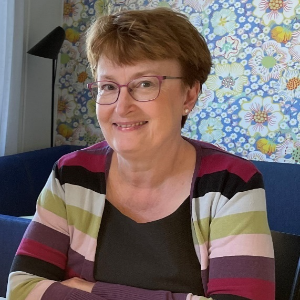Title : Heart failure: assessments and treatment prior to and during geriatric care
Abstract:
Background: Heart failure (HF) is globally the most common cause for admission to hospital for patients 65 years and older in high income countries. Research on HF has however often focused on younger patients. The aim of these studies was to analyze extent of investigation and treatment among older patients prior to referral to inpatient geriatric care for worsening of HF and investigation and treatment changes during the geriatric care episode.
Data: Data were retrospectively collected from 134 individuals treated for heart HF as main diagnosis in wards specialized in geriatric medicine. Data were collected at admission to geriatric care and during the geriatric care episode. Referral content, ejection fraction (EF), Natriuretic peptide type B (NT-pro-BNP), echocardiography (ECHO) and drug treatment, adherence to guidelines as well as length of care episode, additional investigations during the care episode, drug treatment changes and content in referrals to primary care were collected.
Results: The patients were high consumers of inpatient care with 3.8 care episodes during the year prior to admission and a high comorbidity burden with in average 3.7 according to Charlson’s Comorbidity Index. Few patients (14%) had been examined by a cardiologist prior to referral. Patients investigated with ECHO were characterized as HFrEF (28%, HFpEF (53%) or HFmrEF (19%). The HFpEF group had had older assessments with ECHO (mean 517 days) than those with HFrEF (385 days). Only 22% of the 134 patients had had recent assessments (within 90 days) with ECHO and NT-pro-BNP, although they were repeatedly admitted to inpatient care.Among the HFrEF patients 78% were treated with angiotensin-converting-enzyme inhibitors or angiotensin receptor blockers (ACEI/ARB) and beta blockers (BB) according to guidelines from the European Society of Cardiology (ESC) but reaching only half of the target doses. Among patients with EF≤35% only 14% were treated according to guidelines, ie using also mineral receptor antagonists (MRA).During the geriatric care episode for HF, 20% were assessed with NT-pro-BNP and 1,5% with ECHO. No patients were assessed according to New York Heart Association. During the hospital stay, there was a significant increase in treatment with MRA and furosemide, but no significant changes in treatment with ACEI/ARB nor BB.Compared with referral content to geriatric care, there was further a significant wash-out of information in the referrals from the geriatric to primary care. Information on etiology dropped from 31.4% to 5.8% (p<0.001) and information on EF dropped from 19.8% to 3.5% (p<0.001).
Conclusions: HF care in this population of older individuals showed deficiencies. There was little contact with cardiologists, lack of information of in referrals and low adherence to treatment guidelines.The contribution in the geriatric care of diagnostic assessments was low. Geriatric care did not change prescription of ACEI/ARB or BB, but increased treatment with furosemide and MRA. There was a distinct wash out of information on etiology and EF in the follow-up referrals from the geriatric clinic/hospital to the primary care.It is unlikely that improved diagnostic work-up and improved basis for treatment strategies can be managed through solely cardiologist’s or geriatrician’s intervention. More collaboration between cardiologists, geriatricians and primary care physicians is needed to improve the health situation among geriatric HF patients.
Audience Take Away Notes
- Although heart failure is the most common cause of inpatient care for patients over 65 years, assessments and treatment were not performed according to guidelines prior to geriatric care.
- The geriatric care episode did not contribute to further assessments for HF.
- Treatment with furosemide and MRA increased during the geriatric care episode, but there were no other significant drug changes.
- There was a worrying lack of information on EF and HF etiology in the referrals to geriatricians but also from geriatricians to primary care specialists.
- More collaboration between cardiologists, geriatricians and primary care physicians is needed to improve diagnostic work-up and treatment for geriatric HF patients.



